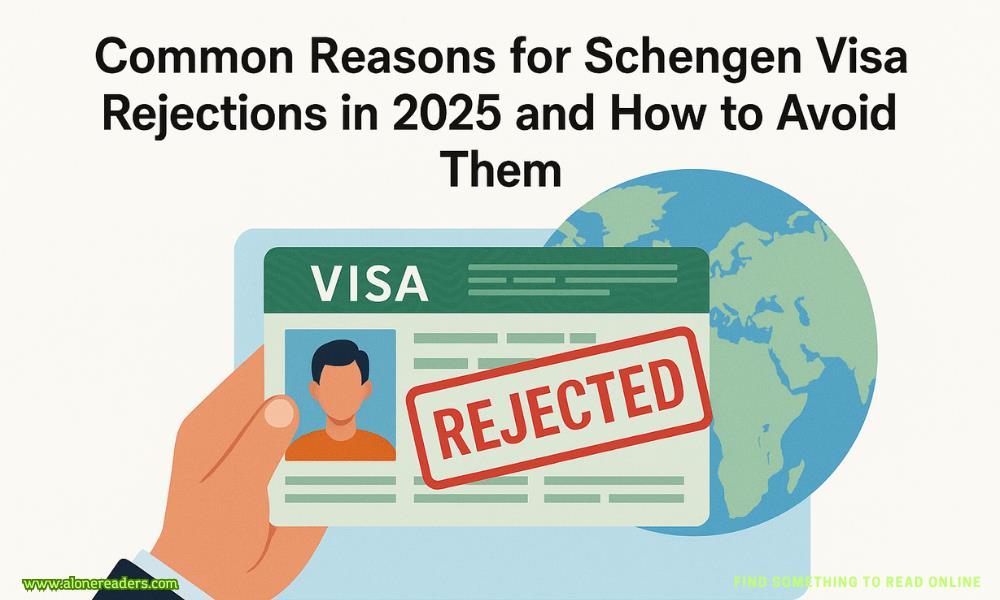
Applying for a Schengen visa can be a stressful process, especially when rejection rates remain high for certain nationalities. Despite providing necessary documents, many applicants still face denials due to seemingly minor mistakes or overlooked requirements. In 2025, the Schengen member states have intensified scrutiny over documentation accuracy, applicant credibility, and financial transparency. This article explores the most common and specific reasons for Schengen visa rejections in 2025, along with deep, actionable guidance on how to avoid them.
Missing travel itinerary or dummy booking
In 2025, most embassies are cross-verifying hotel and flight bookings with known reservation systems. Submitting unverified dummy bookings, especially ones from unreliable platforms, leads to suspicion and automatic refusal.
How to avoid:
Untranslated documents
Applicants from non-EU language-speaking countries often forget to submit translations for key documents like birth certificates or bank statements.
How to avoid:
Mismatched information
Minor mismatches in spelling, date formats, or addresses across your application, passport, and supporting documents can be flagged as red flags.
How to avoid:
Weak ties to home country
In 2025, Schengen embassies are tightening scrutiny on applicants from high-risk visa overstay countries. Lack of proof of employment, property, or family ties increases rejection risk.
How to avoid:
Insufficient leave approval from employer
If you're employed but your employer’s letter does not explicitly mention approved vacation dates, it raises doubts about your ability to return to work.
How to avoid:
Low bank balance
A visible lack of financial capacity is one of the top reasons for Schengen rejections. Embassies in 2025 are not just looking for a minimum balance, but also consistent and logical income flow.
How to avoid:
Suspicious transactions
Frequent deposits and withdrawals without explanation or a lump-sum deposit before the application can be seen as document manipulation.
How to avoid:
Third-party sponsorship with weak ties
If a distant relative or friend is sponsoring you and there's no strong proof of relationship or intent, the embassy may see this as high-risk.
How to avoid:
Blank passport or limited international travel
First-time travelers with no history of returning from overseas visits are often scrutinized more harshly.
How to avoid:
Previous Schengen or other visa refusal
Embassies share refusal information via the Visa Information System (VIS). A prior rejection without explanation can lead to another refusal.
How to avoid:
Lack of trip clarity
A vague cover letter that doesn’t clearly mention the purpose, route, and intent of the trip weakens your application.
How to avoid:
Failure to customize for the embassy
Sending the same letter to different embassies, especially if you apply in a country that is not your main destination, raises red flags.
How to avoid:
Applying to wrong consulate
In 2025, embassies are actively rejecting applications if they are not responsible for the main destination of the trip. This includes cases where travelers try to bypass stricter embassies.
How to avoid:
Overly long stays for a tourist visa
Applying for 80–90 days as a tourist without strong purpose (like family event or slow travel) leads to doubt about intent.
How to avoid:
Invalid travel insurance
Insurance policies not covering the required minimum of €30,000 or not valid for the full trip duration are outright rejected.
How to avoid:
Passport issues
Passport validity below three months beyond the intended return date or physical damage (e.g., torn pages, water damage) results in instant rejection.
How to avoid:
Handwritten forms or altered documents
Embassies in 2025 have upgraded to automated form checking. Handwritten applications or corrected documents raise authenticity concerns.
How to avoid:
Conclusion
Visa rejections are never pleasant, but most of them are avoidable with diligence and proper planning. In 2025, the Schengen visa system has become more meticulous, with advanced checks on financial, legal, and personal backgrounds. Every small detail—from the way your cover letter is written to the consistency of your financial documents—plays a crucial role. By understanding the specific reasons visas are rejected and applying the best practices detailed above, you significantly improve your chances of receiving that much-awaited “Approved” stamp.